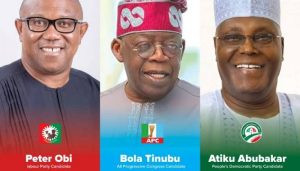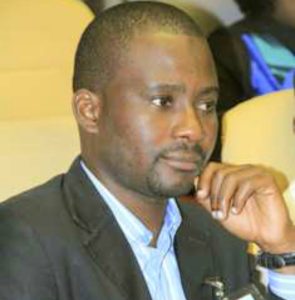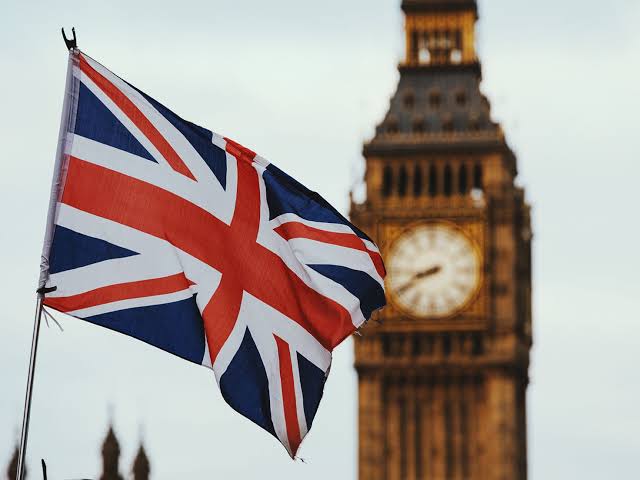The 2023 presidential election had been conducted and result released. Although the result of the poll is still being challenged by some of the opposition parties, mainly the Labour Party (LP) and the Peoples Democratic Party (PDP) and their presidential candidates, the nations electoral body, Independent National Electoral Commission (INEC), had presented certificate of return to winner of the poll, former Governor of Lagos State and presidential candidate of the ruling All Progressives Congress (APC), Asiwaju Bola Ahmed Tinubu. Like previous presidential elections, the 2023 election has had its share of controversies ranging from claims of manipulation to lack of transparency by members of the opposition parties. Aggrieved parties and candidates have been advised to seek redress through the law court.
While members of the opposition are making plans to approach court for redress, many Nigerians are still celebrating the emergence of the president elect, whom they believed orchestrated a well planned political campaign. I commend all the presidential candidates in the election for their campaigns aimed at convincing Nigerians on the need to vote them. This is a signal that our democracy is advancing, though there are still grey areas that need serious attention. This is a great moment for every optimistic Nigerian with high hope in a new and progressive Nigeria.
Commendations should also be extended to the nations electoral umpire, INEC for conducting this election. Although far from being perfect- there is no perfect election anywhere in the world- the Commission has demonstrated courage and commitment to surpass the last general election it conducted. The introduction of Bimodial Voter Accreditation System (BVAS) and other measures has made electoral malpractices a difficult task.
READ ALSO: Nigeria Rakes In N21trn From Crude Oil Sales In One Year – NBS
‘Most Wanted’ Nigerian Prostitution Ring Leader Extradited To Italy
Shekarau, Nigerian Senator-Elect, Rejects Seat, Certificate of Return
BREAKING: Tinubu Is Nigeria’s President-Elect – INEC
Election Tinubu Won ‘Failed to Meet’ Citizens’ Expectations: US Envoy
Election is a process of reaching a consensus on the representation of citizens of a particular state in public offices. Since the medieval days of representation in the old Greek society, election has become a means through which people elect those who will represent them and hold them accountable for their performance in office. As a driving force for sustainable democracy, elections are done on a periodic basis to provide legitimacy to political office holders and strengthen the political structure of a society. They give people an opportunity to have their say in the affairs of their society. Hence, every election serves as conversation period between political office holders and the people.

During this exchange, the political office holders seek the approval and endorsement of the electorate through dissemination of series of issues-based messages to address issues affecting the society and offer promising statements, all contained in political campaign messages. Political campaign is one of essential activities during elections. It involves political candidates and parties informing and influencing voters to vote for them. In any political campaign, the voters are the target audience of the campaign messages which are aimed at positioning the political candidate, his or her ideology and party. As recipients of planned and strategic messages, the voters are influenced by various political marketing strategies and advertising media messages
Since its return to civil rule in 1999, Nigeria has intensified efforts to sustain its democracy. This resolution has culminated into sustained periodic elections i.e 1999, 2003, 2007, 2011, 2015, 2019 and 2023. Due to peculiarity of each electioneering period, political campaign messages are designed to respond to issues of the period and position the personalities of the political candidates as solutions to existing challenges. For instance, the political campaign messages for the 2015 presidential election focused on raging issues such as the release of Chibok girls, lack of political will by the then incumbent Peoples Democratic Partys administration of President Goodluck Jonathan to address endemic corruption and war against insurgents in the North East.
Eight years later, the political gladiators were back with another set of emotion and issues laden political campaign messages prepared for different strategic groups. Unlike previous elections, the 2023 presidential poll had been dramatic before the official commencement of the process, This could be attributed to issues surrounding the emergence of the political candidates, their personalities and the state of the nation.

First, a lot of controversies emerged from the presidential primaries of all the political parties. The political drama in the ruling All Progressives Party before and after the emergence of Asiwaju Bola Tinubu culminated into new political slogans of Emi lokan, Olule, Egbe kiniwa. Most of the political messages of the presidential candidate features Emilokan slogan which connotes, it is my turn to become the next president.
In the main opposition, the intrigues surrounding the emergence of Atiku Abubakar rekindled the raging discussion of rotation of power between Southern and Northern Nigeria. Due to perceived injustices in how the party handled its primary election, PDP lost most of its heavyweights leading to internal implosion which according to most political observers was a primary factor responsible for the loss of presidential election by the party. The internal crisis led to the fallout of the PDP G5 governors, the exit of Peter Obi, former governor of Anambra state and presidential candidate of the Labour Party and a lot of internal wrangling by members of the party.
A post mortem examination of the political messages of the candidates and their parties reveals that most of the messages were strategically prepared to address different issues and audience. The campaign messages were laced with new words such Emilokan, Last Man Standing, A New Nigeria is POssible and third party endorsements by artistes, religious and traditional leaders, activists and statesmen.
The Asiwajus campaign messages were hinged on his partys Renewed Hope agenda which was based on addressing development needs of the nation. The campaign messages focused on needs of strategic groups such as artisans, professional bodies, manufacturing sector, youth and farmers. The campaign connotes continuation of President Muhammadu Buharis administration agenda. The campaign was adjudged by many to be issue-based and national in orientation by highlighting plans of the candidate for each state of the federation and its people.
Unlike Tinubu, Peter Obis campaign was revolutionary. Taking a different route, he positioned himself and his party as alternative to existing political establishment. He directed his campaign specifically at the Nigerian youth and minority groups most of whom are displeased with the existing political class. He advocated for radical liberation of the Nigerian economy. An assessment of his audience reveals the youth most of whom are still angry with the ruling APC-led national government about the 2020 ENDSARS protest, Nigerians of Ibo origin, churches and Christian groups
Atikus campaign messages were aimed at soliciting votes among the northern voters and undecided voters in the southern parts of Nigeria. Similar to Peter Obis economic agenda, Atiku campaign messages supported total liberation of the Nigerian economy.
An observation of the election results reveals that the campaign messages among several factors played a key factor on the voting pattern. As speculated, most youths in the South Western parts of Nigeria, voted for Peter Obis Labour Party. This could be attributed to his campaign messages.
It was equally observed that a significant majority of Nigerian Christians both in the southern and northern parts of the country voted for him. He also gathered a significant part of his votes from South East Nigeria, which is inhabited by his kinsmen. An assessment of Tinubus votes reveals a nationalistic outlook of the voting pattern. Except in the South East, Tinubu gathered votes from all regions in Nigeria which enabled him to have 24% of votes in 30 states of the nation and the majority votes. Election results of Atiku Abubakar reveal that majority of his votes were gathered from his northern base except in Osun and Bayelsa states in Southern Nigeria. This is not a pointer to deterministic influence of campaign messages, but it is a pointer to the influential role of campaign messages.
To some communication professionals, the campaign messages centred on personalities of the candidates, while others believed they strategically focused on issues of the moment. While we await findings of post campaign studies, political parties are encouraged to engage in more issue-based campaigns.
Ganiu Okunnu, PhD, is a behavior change communication expert and lecturer at the Faculty of Communication and Media Studies, Lagos State University, Lagos. He can be reached via @GOku





